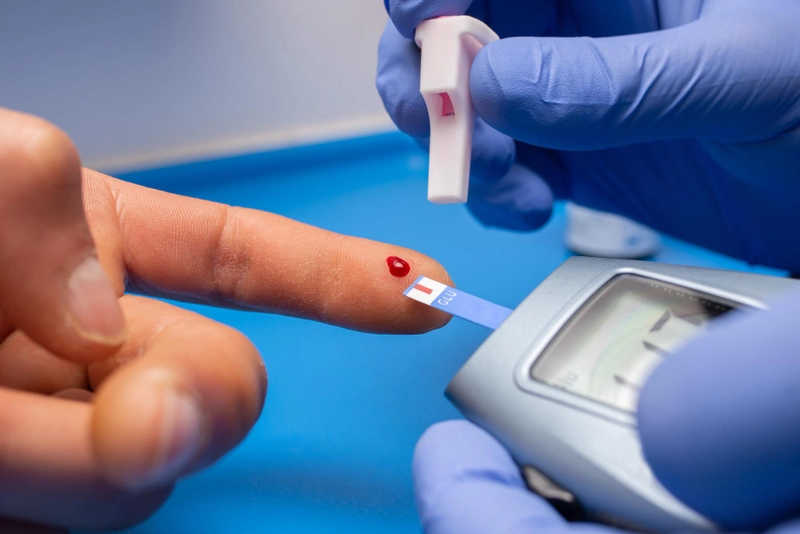- Published on: Jun 07, 2024
- 2 minute read
- By: SecondMedic Expert
Staying Healthy During The Rainy Season: Precautions And Measures
The rainy season brings a refreshing change in the weather, a respite from the heat, and lush green landscapes. However, it also brings with it a host of health challenges. From waterborne diseases to viral infections, the rainy season can affect our health in numerous ways. Therefore, it is essential to take specific precautions and measures to stay healthy during this period. This blog will provide comprehensive guidance on how to safeguard your health during the rainy season.
Understanding the Health Risks
1. Waterborne Diseases:
- Common diseases include cholera, typhoid, and hepatitis A, primarily spread through contaminated water.
- Symptoms to watch for include diarrhea, vomiting, fever, and abdominal pain.
2. Mosquito-Borne Diseases:
- The rainy season creates stagnant water, a breeding ground for mosquitoes, leading to diseases like malaria, dengue, and chikungunya.
- Symptoms include high fever, chills, joint pain, and fatigue.
3. Viral Infections:
- Cold and flu are common due to fluctuating temperatures and increased humidity.
- Symptoms include sore throat, cough, runny nose, and body aches.
4. Fungal Infections:
- Increased moisture can lead to fungal infections, particularly in the feet and skin.
- Symptoms include itching, redness, and rashes.
Health Precautions to Take
1. Ensure Safe Drinking Water:
- Boil Water: Boil water before drinking to kill germs.
- Water Purifiers: Use water purifiers or bottled water to ensure safety.
2. Eat Hygienic Food:
- Avoid Street Food: Street food can be contaminated, especially during rains.
- Home-Cooked Meals: Prefer home-cooked meals using fresh ingredients.
- Wash Fruits and Vegetables: Thoroughly wash fruits and vegetables before consumption.
3. Prevent Mosquito Breeding:
- Remove Stagnant Water: Ensure there is no stagnant water in or around your home.
- Use Mosquito Repellents: Apply mosquito repellents and use mosquito nets while sleeping.
- Wear Protective Clothing: Wear long-sleeved clothes to minimize skin exposure.
4. Boost Immunity:
- Healthy Diet: Consume a balanced diet rich in vitamins and minerals. Include fruits like oranges, guavas, and kiwis, which are high in Vitamin C.
- Stay Hydrated: Drink plenty of fluids to stay hydrated.
- Regular Exercise: Engage in regular exercise to boost your immune system.
5. Maintain Personal Hygiene:
- Hand Hygiene: Wash hands regularly with soap and water, especially before eating.
- Foot Care: Keep feet dry and clean. Avoid walking barefoot in muddy or wet areas to prevent fungal infections.
- Bathing: Take regular baths and keep your body clean and dry.
Additional Measures for Safety
1. Road Safety:
- Drive Carefully: Roads can be slippery; drive slowly and carefully.
- Vehicle Maintenance: Ensure your vehicle's brakes, tires, and wipers are in good condition.
2. Home Safety:
- Check for Leaks: Inspect your home for leaks and fix them to prevent water seepage.
- Electrical Safety: Avoid using electrical appliances when there is waterlogging to prevent electric shocks.
3. Stay Informed:
- Weather Updates: Keep track of weather forecasts and plan your activities accordingly.
- Health Alerts: Be aware of any health advisories or alerts issued by health authorities.
Environmental Hygiene
1. Proper Waste Disposal:
- Avoid Littering: Dispose of waste properly to prevent clogging of drains and waterlogging.
- Segregate Waste: Segregate biodegradable and non-biodegradable waste.
2. Community Clean-Up:
- Participate in Drives: Engage in community clean-up drives to ensure public spaces are clean and free from water stagnation.
3. Rainwater Harvesting:
- Sustainable Practice: Implement rainwater harvesting to make the most of the rainy season and reduce water wastage.
Conclusion
The rainy season, with its beauty and bounty, should be enjoyed without compromising on health. By taking proactive measures and following the precautions outlined above, you can protect yourself and your loved ones from the common health risks associated with this season.
Remember, staying informed, maintaining good hygiene, and boosting your immunity are key to staying healthy during the rains.
For an added layer of protection, consider getting the JAANCH MONSOON FEVER PANEL ADVANCED. This comprehensive test helps diagnose various monsoon-related illnesses like Dengue, Malaria, Typhoid, Chikungunya, and Influenza. Early diagnosis allows for prompt treatment and a faster recovery.
Enjoy the monsoons, but stay safe and vigilant!
Read FAQs
A. During the rainy season, common health issues include waterborne diseases like cholera and typhoid, mosquito-borne diseases such as dengue and malaria, and respiratory infections due to increased humidity and mold growth. It's essential to take preventive measures to avoid these health problems.
A. To prevent waterborne diseases, ensure you drink only purified or boiled water, avoid eating street food, and maintain good hygiene practices. Washing hands frequently, especially before meals and after using the restroom, is crucial. Additionally, make sure to store water in clean, covered containers to prevent contamination.
A. To avoid mosquito-borne diseases, use mosquito repellents and nets, wear long-sleeved clothing, and keep your surroundings clean and free of stagnant water where mosquitoes breed. Regularly check and clean water storage containers, and ensure proper drainage around your home to prevent mosquito breeding sites.
Our Services
Request A Callback
Recent Posts
Lipid Profile Test – Normal Range and Risks
Jul 12,2025
How to Prevent Food Poisoning in Monsoon
Jul 10,2025










